James Fennimore Cooper penned the world’s first spy novel (imaginatively titled The Spy) way back in 1821, but it wasn’t until the 1930s that espionage fiction really came into its own.
Given fresh impetus by the double-dealing machinations of The Cold War and a new age of global terrorism, it has flourished ever since.
Here are seven spy thrillers for you to enjoy.
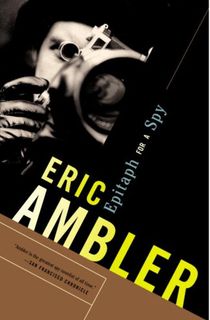
Epitaph for a Spy
Though there were realistic espionage novels before him (notably Somerset Maugham’s Ashenden stories), Ambler has some claim to being the godfather of the modern spy novel.
His books are understated and subtle. Set amongst the chaos of pre-Second World War Europe there’s none of the jingoistic boys own adventure tone that characterizes writers like John Buchan. Epitaph for a Spy (1938) is set in a Mediterranean hotel as France prepares for war.
A muddle with a camera sees one of the guests, hapless language teacher, Josef Vadassy, forced to spy on his fellow holidaymakers by the French secret service to discover which of them is selling photos of France’s naval bases to fascist Italy.
A neat mix of Agatha Christie-style country house murder mystery and spy fiction, Ambler’s novel is an elegant treat.
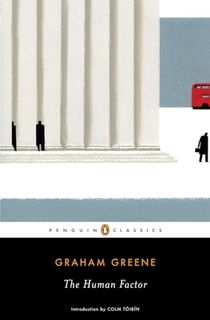
The Human Factor
One of the greatest English novelists of the twentieth century, Greene was involved in work for MI6 in various capacities as he traveled the world’s trouble spots (Haiti, Cuba, Vietnam) looking for material and inspiration.
This novel from 1974 is one of his last books and also one of his best, a melancholy espionage novel featuring a cast of upper-crust British spies and seedy low-level operatives in a suitably damp and down-at-heel London.
The story revolves around the quest to find a Soviet agent, the plot is cleverly constructed, but it’s Greene’s empathy for his conflicted characters that brings the book to life.

Tinker, Tailor, Soldier, Spy
Le Carre served in MI6—though for how long and in what capacity remains opaque—and he brought in-depth knowledge and realistic jargon to a genre that had swerved into fantasy in the 1960s thanks to the James Bond movies.
Featuring the sad and owlish George Smiley, Tinker, Tailor, Soldier, Spy is his masterpiece. A fictional rendering of the notorious Kim Philby double agent case, it’s filled with memorable characters and scenes, played out in a bitter atmosphere of mistrust and betrayal in a lugubrious Britain that has lost its place in the world.
The follow-up, Smiley’s People is also superb, as is the BBC series of both novels featuring the masterful Alec Guinness as Smiley.
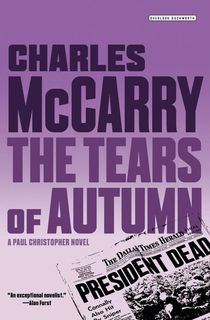
The Tears of Autumn
The second in former CIA undercover operative McCarry’s excellent seven-book Paul Christopher series came out in 1973. In it the blue-blooded, cool, and sophisticated Christopher investigates the 1963 Kennedy Assassination.
The trail takes him to a sweaty, chaotic, and menacing Vietnam where—and I don’t think this is a spoiler – he discovers it wasn’t the work of a lone gunman after all, but something far bigger and more complex.
McCarry (a great admirer of Ambler) knows his tradecraft. He invokes the sinister weirdness of war-torn South East Asia superbly and Christopher is a wonderfully enigmatic hero, both intelligent and watchful.
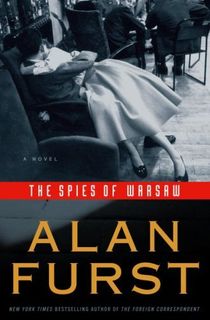
The Spies of Warsaw
Inspired by Ambler and Greene, modern-day New Yorker Furst sets his work in 1930s Europe, with locations ranging from the Balkans through Greece to the dark streets of Paris.
This cracking 2008 novel is, as the title suggests, set in Poland as the nation prepares itself for the coming Nazi invasion. The hero is dashing French military attaché Lieutenant-Colonel Mercier de Bouton, who runs a network of spies who are striving to uncover Hitler’s possible plan for the invasion of France.
The plot is on the thin side, but the pleasure of reading Furst is in the characterization, the atmosphere, and the wit. There are bundles of all three here.

The Spanish Game
Scotsman, Cummings is a spy novelist in the Le Carre tradition, subtle and understated.
Now a resident in Madrid, this 2006 thriller is the second to feature anti-hero Alex Milius, a disaffected loner and former MI5 operative whose amoral view of the world makes him an ideal espionage agent.
In this brilliantly realized novel Milius finds himself investigating a plot by Basque terrorists to bring down the Spanish government, and uncovering dark deeds from the past as he does so.
Taut, twisting, and inhabited by characters who are never quite what they seem, there’s little wonder The Times ranked The Spanish Game as one of the six best spy novels ever written.
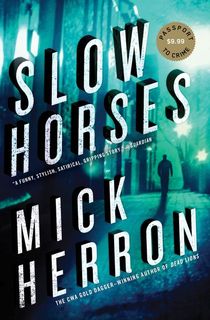
Slow Horses
Newcastle-born writer Herron’s world of spies is very different from that of Le Carre and Cummings.
His Slough House novels focus on a group of incompetent—but lovable (well, up to a point)—MI5 misfits who are serving out their time in a grim office above a Chinese takeaway in North London.
Leading them is the monstrous genius, Jackson Lamb (brilliantly played by Gary Oldman in the excellent TV adaptation), a Cold War veteran who lives off a diet of curry, scotch, and cigarettes.
Herron’s dialogue fizzes with great jokes, his plots are tight and Lamb is one of the great creations of espionage fiction.





